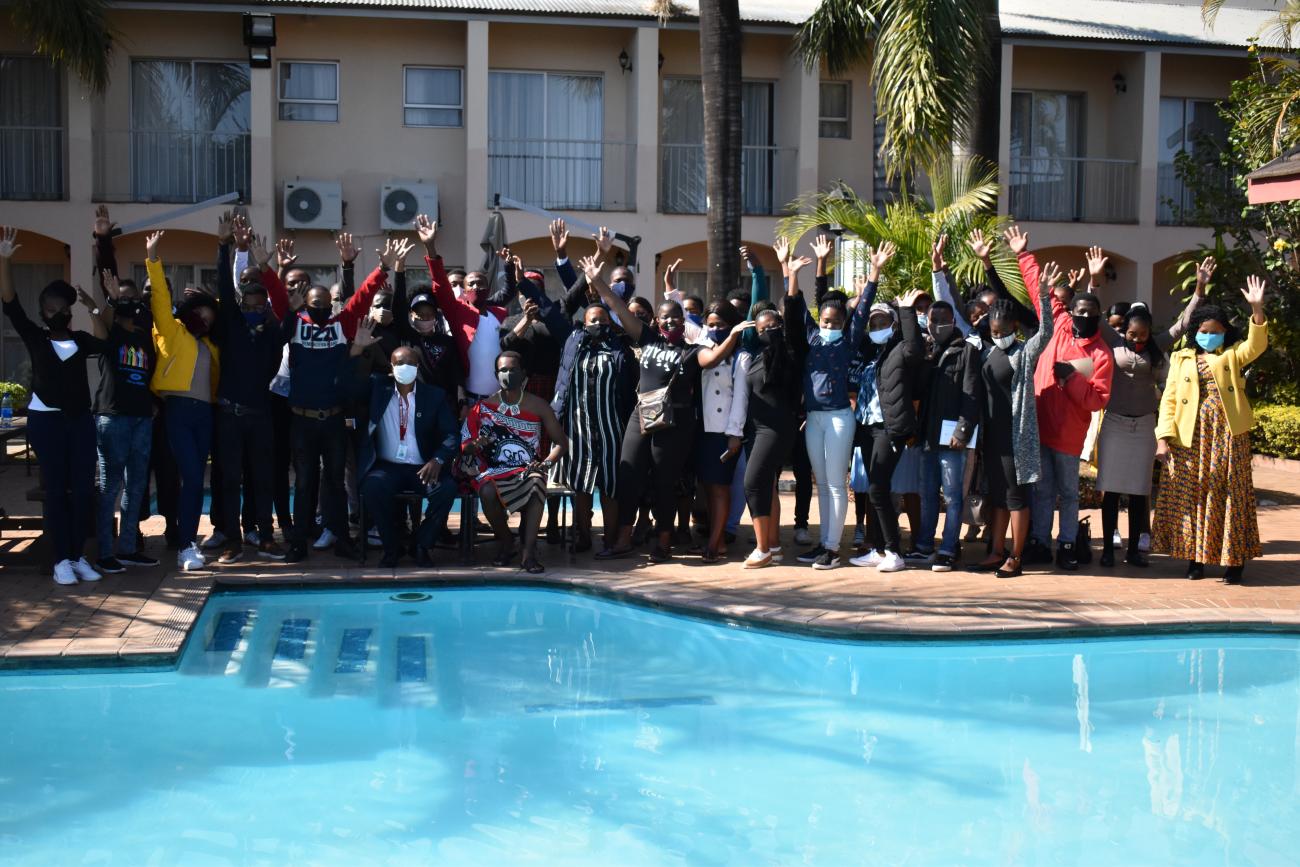The UN Hosts a UN75 Dialogue with Emaswati Youth

In collaboration with UNFPA and Eswatini National Youth Council, the UN hosted a UN75 Dialogue with youth from across the nation on Thursday, 30th July.
The COVID-19 pandemic has drastically impacted today’s youth, many of whom do not have a platform through which their voices are heard. In an effort to listen to the voices of some of our nation’s most vulnerable, in collaboration with UNFPA and Eswatini National Youth Council, the UN hosted a crucial UN75 dialogue with Emaswati youth.
Held on Thursday, 30th July at the George Hotel, Manzini, nearly 400 youth, aged 16 to 24, joined the conversation.
The UN Secretary-General, Mr António Guterres, noted how the COVID-19 pandemic has hit hardest the world’s 1.8 billion young people, aged 10 to 24; the largest generation of young people in history. The COVID-19 pandemic has further marginalized youth, preventing access to ‘regular’ education, impacting their future and jobs, social, family lives and mental health.
The Kingdom of Eswatini, with a population of 1.1 million people, has approximately 240,000 young people aged 15 to 24 and 433,000 children between ages 0 to 14. Children and young people are significantly vulnerable to the effects of the COVID-19 pandemic, signifying the importance of listening to, protecting and enabling them.
Young people shared how the COVID-19 pandemic has decreased household income, producing tensions within their homes and giving rise to incidences of gender-based violence. Some young people have sadly lost their parents due to coronavirus and in turn, income and safety.
The closure of schools has resulted in increasing cases of rape, teenage pregnancies and drug-use with many teenage girls no longer able to access sanitary pads through school schemes, dramatically increasing inequality.
Initiatives to empower young people to earn an income face restrictions due to the implementation of the lockdown, affecting hugely the futures of many young people.
However, participants continued to express how they have embraced the COVID-19 lockdown by connecting with their families and friends, spending time with themselves and growing as individuals. Some have found alternative digital methods through which they connect with young Emaswati, as have entrepreneurs identified fresh solutions and created businesses of their own.
“I hope to see a future in which there are more opportunities for employment, businesses have a more open mind-set and tertiary, more education opportunities are available institutions produce a high calibre of workers,” stated a young person; “The whole world must have one vision on how we can live better.”
Attendees shared solutions to create a prosperous world and Eswatini, saying: “We need to be creative when recovering the economy. Young people need mentorship from people already in business as well as peer motivators.”
They continued; “Young people need to take responsibility. They need to enable the Government with new solutions, embracing the new normal and identifying opportunities.”
Access to education and the Internet remains unequal across the population, with many students unable to access digital resources and opportunities.
The inequalities experienced and shared by young people will be compiled into a report and presented to the UN General Assembly in September; at which Eswatini will hold the honoured position as Vice President. Might the voices of our young Emaswati be heard!















